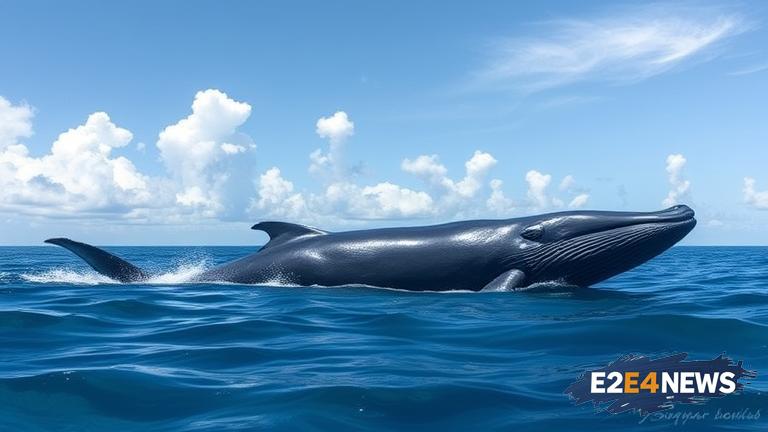The government of Dominica has taken a significant step towards protecting its marine biodiversity by establishing a new reserve to safeguard the habitat of sperm whales. This move is expected to have a positive impact on the country’s ecosystem and contribute to the global efforts to conserve marine life. The new reserve legislation aims to provide a safe haven for sperm whales, which are known to frequent the waters around Dominica. The legislation is a result of extensive research and consultation with local stakeholders, including fishermen, tour operators, and conservationists. The reserve will be managed by the Dominica Marine Conservation Association, which will work closely with the government to ensure the effective implementation of the legislation. The establishment of the reserve is a major milestone in Dominica’s efforts to protect its marine environment, which is considered one of the most pristine in the Caribbean. The country’s unique geography, with its steep slopes and deep waters, provides a perfect habitat for sperm whales, which are known to dive to great depths in search of food. The reserve will not only protect the sperm whales but also other marine species that inhabit the area, including dolphins, sea turtles, and numerous species of fish. The legislation will also provide opportunities for sustainable tourism, which is expected to boost the local economy. Tourists will be able to visit the reserve and observe the sperm whales in their natural habitat, providing a unique and educational experience. The reserve will also serve as a research center, where scientists can study the behavior and habitat of sperm whales. The government of Dominica has committed to providing the necessary resources to ensure the effective management of the reserve, including funding, personnel, and equipment. The establishment of the reserve is a testament to Dominica’s commitment to protecting its natural resources and preserving its unique biodiversity. The country has a long history of conservation efforts, dating back to the 1970s, when it established its first national park. Since then, Dominica has continued to expand its conservation efforts, including the establishment of marine protected areas and the implementation of sustainable fishing practices. The new reserve legislation is expected to have a positive impact on the local community, which will benefit from the creation of jobs and the generation of revenue from sustainable tourism. The reserve will also provide opportunities for education and outreach, raising awareness about the importance of marine conservation and the need to protect sperm whales and their habitat. The government of Dominica is working closely with international organizations, including the International Whaling Commission, to ensure that the reserve is managed in accordance with international best practices. The establishment of the reserve is a significant step towards achieving the goals of the Convention on International Trade in Endangered Species of Wild Fauna and Flora (CITES), which aims to regulate the trade of endangered species, including sperm whales. The reserve will also contribute to the implementation of the United Nations’ Sustainable Development Goals (SDGs), particularly Goal 14, which aims to conserve and sustainably use the world’s oceans, seas, and marine resources. In conclusion, the establishment of the sperm whale reserve in Dominica is a major achievement in the country’s efforts to protect its marine biodiversity and contribute to global conservation efforts. The reserve will provide a safe haven for sperm whales and other marine species, while also promoting sustainable tourism and supporting the local economy.
